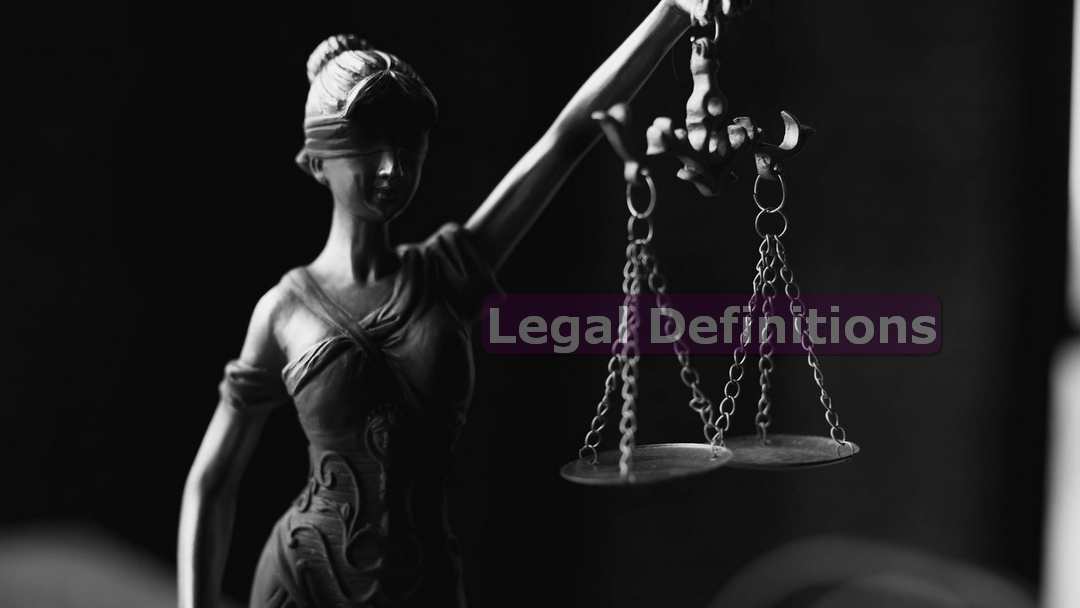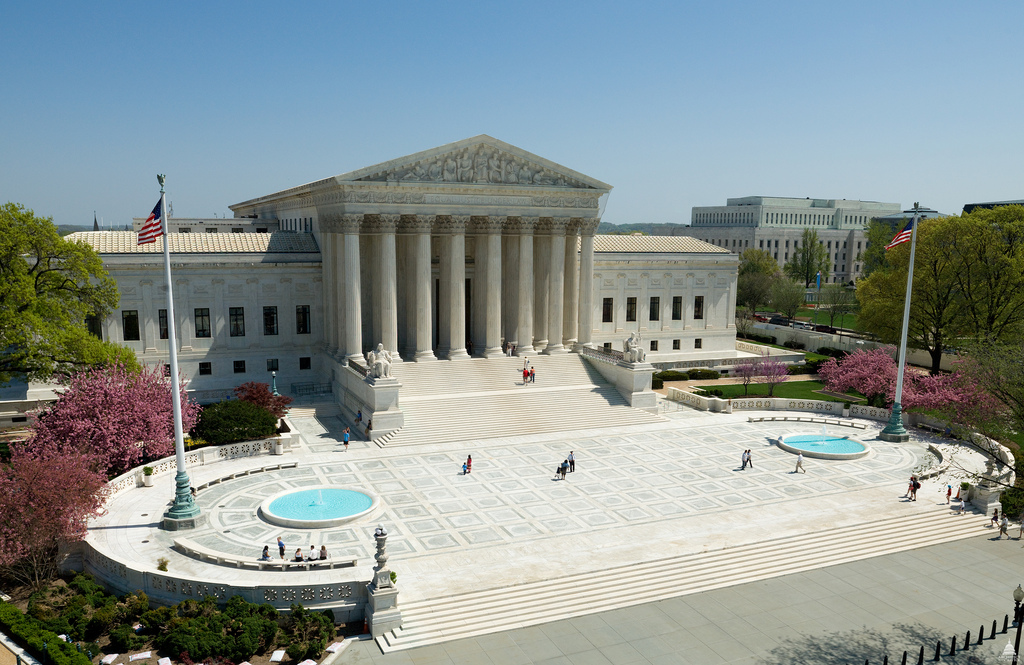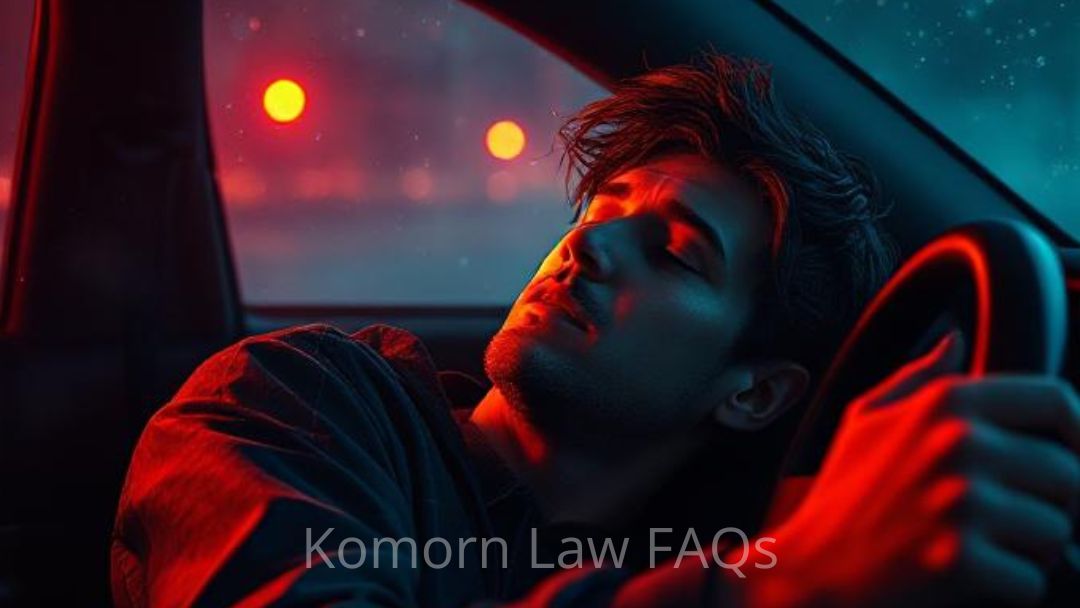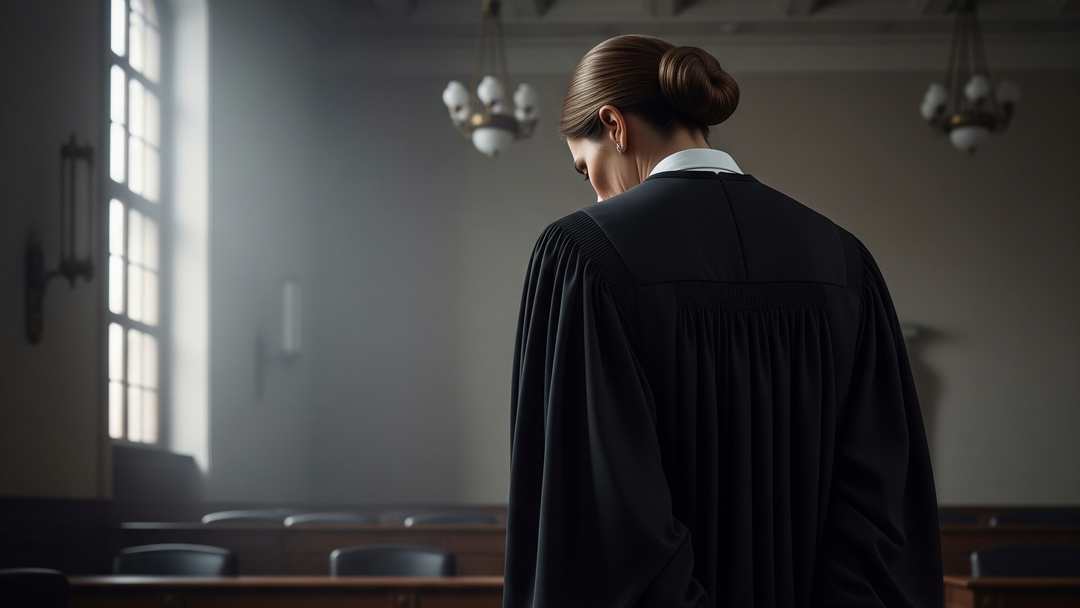No Results Found
The page you requested could not be found. Try refining your search, or use the navigation above to locate the post.

In legal contexts, recidivism refers to a person’s relapse into criminal behavior, often after having been previously convicted and penalized for similar or other crimes.
When someone re-offends, they are described as a “recidivist.” Recidivism is a critical metric for evaluating the effectiveness of the justice system, particularly in rehabilitation and deterrence efforts.
The rate of recidivism is often used to determine how often released individuals commit new crimes within a certain timeframe, such as within three or five years.
Recidivism can include a range of behaviors, from minor infractions to serious felonies, and it may be influenced by multiple factors. For instance, substance abuse, limited access to education, and lack of employment opportunities are often cited as contributing factors that increase the likelihood of recidivism. Conversely, interventions like vocational training, substance abuse programs, and stable housing have been associated with lower recidivism rates.
Recidivism data is essential for policymakers, who use it to evaluate the impact of sentencing practices, parole guidelines, and rehabilitation programs. A high recidivism rate might suggest that existing measures are insufficient to prevent re-offense, while a lower rate might indicate effective rehabilitation practices.
The legal system categorizes recidivism rates by different types of offenses. For example, studies show that property crime offenders may have higher rates of re-offense compared to violent crime offenders. This information helps tailor criminal justice reforms to address specific challenges posed by different types of crimes.
Here is a case example
Disclaimer: This article provides a general overview and does not substitute for legal advice. As with any law it can change or be modified and research should be done before you rely on any information provided on the internet. Although we make all attempts to link relevant laws these laws can often be gray and corrupted to fit a narrative. Anyone charged with any alleged crime should consult an attorney for specific legal guidance.
The page you requested could not be found. Try refining your search, or use the navigation above to locate the post.

August 2024, the U.S. Army Corps of Engineers is transporting nuclear waste from the Manhattan Project (Read it) to the Wayne Disposal facility in Belleville, Michigan near the PFAs river and the Van Buren Twp Park.
The waste consists of soil, concrete, and groundwater that are contaminated with low levels of radiation originating from the Niagara Falls Storage Site in Lewiston, New York, a location significant for its role in the development of the atomic bomb during World War II.
The waste is being relocated as part of a comprehensive remediation effort aimed at addressing decades of contamination that began in 1949 when the Army Corps discovered radioactive materials infiltrating the soil and groundwater.
Don’t worry that won’t happen here in Michigan.
Republic Services, a private waste management company owns the facility.
The transportation of waste will occur via 25 trucks weekly along public roads and highways beginning in August 2024 and will extend through January 2025.
The Wayne Disposal facility is the only landfill in Michigan licensed to accept hazardous and low-level radioactive waste. As usual we are told the waste complies with all local, state, and federal regulations and does not pose a significant risk to the public or the environment.
Also… The waste is exempt from federal radioactive material disposal requirements and contains concentrations that are lower than those permitted by its license.
Some residents and officials in Michigan have expressed opposition to the transport and disposal of the waste in their communities. Wayne County Executive Warren C. Evans says that Environmental Injustice in the area has led to higher rates of asthma, lung cancer, heart attacks, strokes, and other health issues, and that residents deserve better. Others, like LaSpada, say that
The Army Corps doesn’t notify communities along the route.
Wonder what MiChap thinks about it
Legal Counsel and Your Rights
When facing legal challenges, particularly in criminal cases, it is advisable to seek legal counsel immediately.
An experienced attorney can provide guidance on how to navigate interactions with law enforcement while safeguarding your constitutional rights.
Since 1993 our expert legal defense in navigating criminal law matters and protecting your constitutional rights are what we eat for breakfast everyday.
Contact Komorn Law PLLC if you’re ready to fight and win.
Research us and then call us.

The Michigan Supreme Court has ruled that the smell of marijuana alone is no longer sufficient probable cause for police to conduct a warrantless search of a vehicle. This decision overturns a previous precedent where the odor of marijuana was considered enough...

Does not amount to “cruel and unusual punishment” under the Eighth Amendment The Supreme Court has affirmed the validity of ordinances in a southwest Oregon city that restrict individuals experiencing homelessness from utilizing blankets, pillows, or cardboard boxes...
Other Articles
Nice Try...This case centered on the disagreement between Cannarbor, Inc., a medical marijuana provisioning center operating in Michigan, and the Michigan Department of Treasury concerning the obligation to collect sales tax on the retail sale of medical marijuana....
Driving under the influence of cannabis is illegal and carries serious consequences in Michigan.We have fought and won many cases from the District Courts, Circuit Courts, Court of Appeals and the Supreme Court through out the State of Michigan. We have also fought...
It may just be easier to collect and analyze tears.This legislation seeks to integrate saliva testing for cannabis within law enforcement procedures, designating a refusal to participate in this testing as a criminal offense, similar to the penalties imposed for...
Komorn Law - Quick Legal TipsLegal Tip: Understanding Your Rights During a DUI Stop in Michigan A DUI stop can be stressful, but knowing your rights is crucial. You have the right to remain silent. You are not obligated to answer questions beyond basic identification....
Simplified Sender and Receiver Dropbox Share Instructions to Someone NOT on your Team. Don't get caught up in another license or give access to your whole box by mistake.Dropbox Sender Share Instructions Log into your Dropbox account Hover over the file or folder...
The Michigan Supreme Court has ruled that the smell of marijuana alone is no longer sufficient probable cause for police to conduct a warrantless search of a vehicle. This decision overturns a previous precedent where the odor of marijuana was considered enough...
Can the police sieze your belongings and hold it without charging you with a crime?Civil asset forfeiture is a legal process that allows law enforcement agencies in Michigan to seize property they suspect is connected to criminal activity, even if the owner hasn't...
Can the police sieze your belongings and hold it without charging you with a crime?Forfeiture laws in Michigan allow the government to seize property – like cash, cars, or even houses – if they believe it was involved in a crime. This can happen even if the owner...

Summary: Komorn Law has won another case in Circuit Court. The Judge suppressed the 26 pounds of marijuana of evidence seized following a...
The Charge - OWI (Accident and 17 nanograms of THC) Set for Trial Thursday, March 18, 2021 at 8:00 am. We arrived at the Roscommon District...
Komorn Law is proud to report a significant and relevant case victory directly related to our recent Michigan Court of Appeals Opinion win in the...
Our client was charged with 5 year felony-carrying a concealed weapon. Here's the law they were charged with... MCL750.227 Concealed weapons;...
DETROIT, Mich. — A judge on Wednesday heard arguments in a federal class action lawsuit filed by medical marijuana patients and caregivers against...
Komorn Law | In the News | Fox 17 News | Links Medical marijuana battle: Father fights for custody of son OTTAWA COUNTY, Mich. – Medical...
A Michigan State Police lieutenant’s decision to destroy more than 500 marijuana plants without a judge’s order has led to dismissal of felony...
Last night's episode of VICELAND's Weediquette focused on how police forces in Michigan are using civil asset forfeiture to target legally run...
GRAND RAPIDS, MI – State police crime labs intentionally misrepresent marijuana oil and edibles as having unknown origins, a tactic that can turn a...
A Michigan man has been living a nightmare. He lost custody of his son after a felony marijuana bust, even though he has a valid medical marijuana...
The Criminal Defense Attorney of Michigan’s Award Committee has selected Michael J. Komorn as the recipient of their Right to Counsel Award. This...
Michigan’s NORML chapter awarded some of the state’s most prominent and outspoken advocates for marijuana law reform during the organization’s...
SPRING LAKE, Mich. -- After 18 months, a Spring Lake family's son is out of foster care and reunited with his parents. Yet the fight to be...
GRAND HAVEN, MI -- A judge has sided with a Spring Lake man in his battle to get a felony marijuana charge dismissed, a case that hinged on...
More…
MM cardholder Neece was charged with possession of a controlled substance, 36 CFR 261.53(e) for possessing three joints in his kayak.
The feds alleged his possession in a national forest in violation of the MMMA because someone was seen smoking a joint.
Defendant moved to dismiss under the rider to the Consolidated Appropriations Act (f/k/a Rohrabacher-Farr or Rohrabacher-Blumenauer).
The court dismissed the case, citing McIntosh. The court held that strict compliance must be established to be dismissed. Had the officers seen Neece smoking in public, in violation of the MMMA 333.26427(b)(3), the court would not have dismissed the case.
A big hearty congratulations to Michael Komorn and the Komorn Law team for this victory. To the best of my knowledge, this is the first Michigan MM case to dismissed in federal court for violating the rider.
Client was charged with improper transport of marijuana in a vehicle. 750.474 but his medical marijuana card expired and and he needed a section 8 defense to remove this conviction from his record. Defendant would be immune from prosecution if he can prove prima facie evidence and a preponderance of evidence of medical use.
The court heard arguments and dismissed the charge of improperly transporting usable marijuana. Court ruled that defendant was immune based on Section 8
Charges were dropped on 6-3-14
Marijuana Criminal Defense
Client charged with marijuana possession in Montrose MI. Client was assigned a court appointed lawyer and encouraged to plead guilty and accept 3 months of probation. Client hired Michael Komorn for representation and withdrew the plea.
The charge was dismissed.
Medical Marijuana patient charged with 3 counts of Delivery / Manufacture of Marijuana.
Prove defendant was immune from prosecution because of a medical marijuana defense. 333.7401(2)(d)(3) and MCL 333.26424, 333.26428.
Defendant hired Michael Komorn
The defendant was immune from prosecution and that the charges shall be dismissed without prejudice. The prosecutor and court dismissed all three charges on 2-24-2013
Legal Counsel and Your Rights
When facing legal challenges, particularly in criminal cases, it is advisable to seek legal counsel immediately.
An experienced attorney can provide guidance on how to navigate interactions with law enforcement while safeguarding your constitutional rights.
Since 1993 our expert legal defense in navigating criminal law matters and protecting your constitutional rights are what we eat for breakfast everyday.
Contact Komorn Law PLLC if you’re ready to fight and win.
Research us and then call us.

The Michigan Supreme Court has ruled that the smell of marijuana alone is no longer sufficient probable cause for police to conduct a warrantless search of a vehicle. This decision overturns a previous precedent where the odor of marijuana was considered enough...

Does not amount to “cruel and unusual punishment” under the Eighth Amendment The Supreme Court has affirmed the validity of ordinances in a southwest Oregon city that restrict individuals experiencing homelessness from utilizing blankets, pillows, or cardboard boxes...
Other Articles
Nice Try...This case centered on the disagreement between Cannarbor, Inc., a medical marijuana provisioning center operating in Michigan, and the Michigan Department of Treasury concerning the obligation to collect sales tax on the retail sale of medical marijuana....
Driving under the influence of cannabis is illegal and carries serious consequences in Michigan.We have fought and won many cases from the District Courts, Circuit Courts, Court of Appeals and the Supreme Court through out the State of Michigan. We have also fought...
It may just be easier to collect and analyze tears.This legislation seeks to integrate saliva testing for cannabis within law enforcement procedures, designating a refusal to participate in this testing as a criminal offense, similar to the penalties imposed for...
Komorn Law - Quick Legal TipsLegal Tip: Understanding Your Rights During a DUI Stop in Michigan A DUI stop can be stressful, but knowing your rights is crucial. You have the right to remain silent. You are not obligated to answer questions beyond basic identification....
Simplified Sender and Receiver Dropbox Share Instructions to Someone NOT on your Team. Don't get caught up in another license or give access to your whole box by mistake.Dropbox Sender Share Instructions Log into your Dropbox account Hover over the file or folder...
The Michigan Supreme Court has ruled that the smell of marijuana alone is no longer sufficient probable cause for police to conduct a warrantless search of a vehicle. This decision overturns a previous precedent where the odor of marijuana was considered enough...
Can the police sieze your belongings and hold it without charging you with a crime?Civil asset forfeiture is a legal process that allows law enforcement agencies in Michigan to seize property they suspect is connected to criminal activity, even if the owner hasn't...
Can the police sieze your belongings and hold it without charging you with a crime?Forfeiture laws in Michigan allow the government to seize property – like cash, cars, or even houses – if they believe it was involved in a crime. This can happen even if the owner...

The decision underscored the principle that only activities that are essential and directly related to an employee’s primary job responsibilities are subject to compensation.
In a recent decision by the Supreme Court of the United States (SCOTUS), Starbucks received a favorable outcome in a significant labor dispute. The case centered around Starbucks Corporation v. Superior Court of Los Angeles County (Dana Zelman, et al.), a class action lawsuit involving California employees seeking compensation for off-the-clock work.
Background of the Case: The lawsuit was initially filed by former Starbucks employees who alleged that the company violated California labor laws by requiring them to perform certain tasks off-the-clock without compensation. These tasks included closing duties such as locking doors, setting the alarm, and completing paperwork after clocking out.
Legal Issues: The key legal issue revolved around whether these closing tasks constituted compensable work under the Fair Labor Standards Act (FLSA) and California labor laws. The plaintiffs argued that Starbucks’ policies and practices effectively required them to work off-the-clock, leading to unpaid wages.
Lower Court Proceedings: Initially, the Superior Court of Los Angeles County certified a class action lawsuit against Starbucks, allowing current and former employees to join together in seeking compensation for unpaid wages related to off-the-clock work. This decision was upheld by the California Court of Appeal.
SCOTUS Decision: However, the case reached the Supreme Court of the United States, which ultimately ruled in favor of Starbucks. The SCOTUS decision focused on the interpretation of federal labor law and whether the tasks performed after clocking out were integral and indispensable to the employees’ principal activities.
The Supreme Court’s ruling emphasized the distinction between preliminary or postliminary activities and the core work duties for which employees are compensated. The justices found that the closing tasks at issue—such as securing the premises—were part of Starbucks’ overarching operations but did not constitute compensable work under federal law. The decision underscored the principle that only activities that are essential and directly related to an employee’s primary job responsibilities are subject to compensation.
Implications of the Decision: The SCOTUS decision has significant implications for labor law and class action lawsuits involving off-the-clock work. It reinforces employers’ arguments regarding the scope of compensable activities under federal law, potentially limiting the grounds on which employees can claim unpaid wages for tasks performed outside of regular working hours.
Conclusion: In conclusion, the recent SCOTUS decision in Starbucks v. Superior Court of Los Angeles County (Dana Zelman, et al.) delivered a win for Starbucks by clarifying the boundaries of compensable work under federal labor law. The ruling underscores the importance of distinguishing between integral job duties and peripheral tasks when assessing claims of off-the-clock work, setting a precedent that may influence future litigation and employer practices concerning wage and hour disputes in the United States.
Legal Counsel and Your Rights
When facing legal challenges, particularly in criminal cases, it is advisable to seek legal counsel immediately.
An experienced attorney can provide guidance on how to navigate interactions with law enforcement while safeguarding your constitutional rights.
Since 1993 our expert legal defense in navigating criminal law matters and protecting your constitutional rights are what we eat for breakfast everyday.
Contact Komorn Law PLLC if you’re ready to fight and win.
Research us and then call us.

Does the Michigan Regulation and Taxation of Marihuana Act protect you in all Marijuana scenarios?The Conflict The central issue in this interlocutory appeal is whether the Michigan Regulation and Taxation of Marihuana Act (MRTMA), MCL 333.27951 et seq., prevents a...

Does not amount to “cruel and unusual punishment” under the Eighth Amendment The Supreme Court has affirmed the validity of ordinances in a southwest Oregon city that restrict individuals experiencing homelessness from utilizing blankets, pillows, or cardboard boxes...
Other Articles
Allegedly had to put on company-issued personal protective equipment (“PPE”) (such as masks, hair nets, arm sleeves, gloves, scrubs, and protective shoes) before clocking in Close to 1.2 milion settlement for 134 cannabis workers alleging wage violations under federal...
Do Passengers have 4th Amendment Rights?Michigan Supreme Court Limits Police Ability to Search Passenger Property in CarsBackground Mead was a passenger in a car and had just met the driver, who offered him a ride. When the police stopped the vehicle and ordered both...
Students and 4th Amendment RightsStudents are entitled to a right to be safe from unreasonable searches and seizures even within school premises, as ruled by the Supreme Court of the United States. However, these rights are somewhat limited for students, allowing...
Forfeiture Law in Focus: SCOTUS and Sixth Circuit Issue Landmark RulingsThe landscape of forfeiture law has been significantly shaped by recent decisions from the U.S. Supreme Court and the Sixth Circuit Court of Appeals. These rulings, in the cases of United States v...
US Supreme Court - Salinas v. TexasWhen Can Silence Be Used Against You? In the realm of criminal law, the Fifth Amendment to the United States Constitution grants individuals critical protections, including the right to remain silent and the right against...
Supreme Court 8-1 Gun Possession Decision Changes Second Amendment Landscape Forever!Issue: Whether 18 U.S.C. 922(g)(1), the federal statute that prohibits a person from possessing a firearm if he has been convicted of “a crime punishable by imprisonment for a term...
Facial RecognitionHow Technology Can Lead to Mistaken-Identity Arrests Facial recognition technology has become increasingly prevalent in law enforcement, but its use raises critical questions about civil liberties and accuracy. One landmark case sheds light on the...
Court of Appeals of Michigan PEOPLE of the State of Michigan, Plaintiff-Appellee, v. Javarian CHANDLER, Defendant-Appellant. No. 368736 Decided: June 27, 2024Before: Borrello, P.J., and Swartzle and Young, JJ. Introduction In the People v. Chandler case, the Michigan...

Allegedly had to put on company-issued personal protective equipment (“PPE”) (such as masks, hair nets, arm sleeves, gloves, scrubs, and protective shoes) before clocking in
Close to 1.2 milion settlement for 134 cannabis workers alleging wage violations under federal and state labor laws.
The law firm representing the plaintiffs filed a collective and class action lawsuit against the national employer, alleging violations of the Fair Labor Standards Act, state laws, and breach of employment contracts related to unpaid regular and overtime wages.
Read More Details Here at Michigan Lawyers Weekly
Legal Counsel and Your Rights
When facing legal challenges, particularly in criminal cases, it is advisable to seek legal counsel immediately.
An experienced attorney can provide guidance on how to navigate interactions with law enforcement while safeguarding your constitutional rights.
Since 1993 our expert legal defense in navigating criminal law matters and protecting your constitutional rights are what we eat for breakfast everyday.
Contact Komorn Law PLLC if you’re ready to fight and win.
Research us and then call us.

The Michigan Supreme Court has ruled that the smell of marijuana alone is no longer sufficient probable cause for police to conduct a warrantless search of a vehicle. This decision overturns a previous precedent where the odor of marijuana was considered enough...

Does not amount to “cruel and unusual punishment” under the Eighth Amendment The Supreme Court has affirmed the validity of ordinances in a southwest Oregon city that restrict individuals experiencing homelessness from utilizing blankets, pillows, or cardboard boxes...
Other Articles
Nice Try...This case centered on the disagreement between Cannarbor, Inc., a medical marijuana provisioning center operating in Michigan, and the Michigan Department of Treasury concerning the obligation to collect sales tax on the retail sale of medical marijuana....
Driving under the influence of cannabis is illegal and carries serious consequences in Michigan.We have fought and won many cases from the District Courts, Circuit Courts, Court of Appeals and the Supreme Court through out the State of Michigan. We have also fought...
It may just be easier to collect and analyze tears.This legislation seeks to integrate saliva testing for cannabis within law enforcement procedures, designating a refusal to participate in this testing as a criminal offense, similar to the penalties imposed for...
Komorn Law - Quick Legal TipsLegal Tip: Understanding Your Rights During a DUI Stop in Michigan A DUI stop can be stressful, but knowing your rights is crucial. You have the right to remain silent. You are not obligated to answer questions beyond basic identification....
Simplified Sender and Receiver Dropbox Share Instructions to Someone NOT on your Team. Don't get caught up in another license or give access to your whole box by mistake.Dropbox Sender Share Instructions Log into your Dropbox account Hover over the file or folder...
The Michigan Supreme Court has ruled that the smell of marijuana alone is no longer sufficient probable cause for police to conduct a warrantless search of a vehicle. This decision overturns a previous precedent where the odor of marijuana was considered enough...
Can the police sieze your belongings and hold it without charging you with a crime?Civil asset forfeiture is a legal process that allows law enforcement agencies in Michigan to seize property they suspect is connected to criminal activity, even if the owner hasn't...
Can the police sieze your belongings and hold it without charging you with a crime?Forfeiture laws in Michigan allow the government to seize property – like cash, cars, or even houses – if they believe it was involved in a crime. This can happen even if the owner...

Michigan Supreme Court Limits Police Ability to Search Passenger Property in Cars
Background
Mead was a passenger in a car and had just met the driver, who offered him a ride. When the police stopped the vehicle and ordered both the driver and Mead out, the driver consented to a search of the car.
The police officer searched the car, including Mead’s backpack left on the passenger seat, revealing methamphetamine, marijuana, pills, and a digital scale.
Mead’s possession of methamphetamine led to his arrest, followed by a motion to suppress the search which was ultimately denied. The court denied the motion, citing People v LaBelle, 478 Mich 891 (2007). Defendant was convicted and sentenced to serve 2 to 10 years in prison as a habitual offender, resulting in a 2 to 10-year prison sentence imposed by the judge.
The Case
Mead argued that the police did not have the right to search his backpack, highlighting the limited ability of a car passenger to challenge a vehicle search.
However, there may be specific circumstances where a passenger could potentially contest such a search.
To challenge a search, one must show a valid Fourth Amendment expectation of privacy in the area searched, recognized by society. Courts analyze all circumstances to determine the legitimacy of this expectation.
The Court found that Mead had a legitimate expectation of privacy regarding his backpack, as it was his own property that was being searched. This differs from a common scenario where a passenger may hide illicit items in a car they are traveling in.
In a unanimous opinion by Chief Justice MCCORMACK, in lieu of granting leave to appeal, the Supreme Court held:
A passenger’s personal property is not subsumed by the vehicle that carries it for Fourth Amendment purposes. Accordingly, People v LaBelle, 478 Mich 891 (2007), was overruled; in its place, the following standard applies: a person may challenge an alleged Fourth Amendment violation if that person can show under the totality of the circumstances that he or she had a legitimate expectation of privacy in the area searched and that his or her expectation of privacy was one that society is prepared to recognize as reasonable.
The Driver Gave Consent to the Search the Car?!?!
The driver voluntarily allowed the officer to search the vehicle. Consent grants the officer the authority to conduct a search without the need for a warrant.
The key difference lies in the driver lacking the authority to authorize the officer to search Mead’s backpack, as the backpack belonged to Mead.
Read the case and opinions here
PEOPLE OF THE STATE OF MICHIGAN, Plaintiff-Appellee,
v.
LARRY GERALD MEAD, Defendant-Appellant.
Docket No. 156376.
Supreme Court of Michigan.
Argued on application for leave to appeal October 24, 2018.
Decided April 22, 2019.
Legal Counsel and Your Rights
When facing legal challenges, particularly in criminal cases, it is advisable to seek legal counsel immediately.
An experienced attorney can provide guidance on how to navigate interactions with law enforcement while safeguarding your constitutional rights.
Since 1993 our expert legal defense in navigating criminal law matters and protecting your constitutional rights are what we eat for breakfast everyday.
Contact Komorn Law PLLC if you’re ready to fight and win.
Research us and then call us.
§ 11 Searches and seizures.
Sec. 11.
The person, houses, papers, possessions, electronic data, and electronic communications of every person shall be secure from unreasonable searches and seizures. No warrant to search any place or to seize any person or things or to access electronic data or electronic communications shall issue without describing them, nor without probable cause, supported by oath or affirmation.
The provisions of this section shall not be construed to bar from evidence in any criminal proceeding any narcotic drug, firearm, bomb, explosive or any other dangerous weapon, seized by a peace officer outside the curtilage of any dwelling house in this state.
History: Const. 1963, Art. I, § 11, Eff. Jan. 1, 1964 ;– Am. S.J.R. G, approved Nov. 3, 2020, Eff. Dec. 19, 2020
Constitutionality: The last sentence of this section was held invalid as in conflict with US Const, Am IV. Lucas v People, 420 F2d 259 (CA 6, 1970); Caver v Kropp, 306 F Supp 1329 (DC Mich 1969); People v Pennington, 383 Mich 611; 178 NW2d 460 (1970); People v Andrews, 21 Mich App 731; 176 NW2d 460 (1970).
Former Constitution: See Const. 1908, Art. II, § 10.

Michigan Criminal Laws FAQs Super Drunk (High Breath Alcohol Content)Operating a Vehicle with a High BAC (Super Drunk) - MCL 257.625(1)(c)FAQ 1: What BAC level qualifies as "High BAC" or "Super Drunk" in Michigan? Answer: In Michigan, operating a vehicle with a blood...

Maintaining public trust in the judiciary is paramount to a functioning legal system. In Michigan, several mechanisms exist to ensure judicial accountability, holding judges responsible for their conduct both on and off the bench. These safeguards are primarily...
Other Articles
Students and 4th Amendment RightsStudents are entitled to a right to be safe from unreasonable searches and seizures even within school premises, as ruled by the Supreme Court of the United States. However, these rights are somewhat limited for students, allowing...
Forfeiture Law in Focus: SCOTUS and Sixth Circuit Issue Landmark RulingsThe landscape of forfeiture law has been significantly shaped by recent decisions from the U.S. Supreme Court and the Sixth Circuit Court of Appeals. These rulings, in the cases of United States v...
US Supreme Court - Salinas v. TexasWhen Can Silence Be Used Against You? In the realm of criminal law, the Fifth Amendment to the United States Constitution grants individuals critical protections, including the right to remain silent and the right against...
Supreme Court 8-1 Gun Possession Decision Changes Second Amendment Landscape Forever!Issue: Whether 18 U.S.C. 922(g)(1), the federal statute that prohibits a person from possessing a firearm if he has been convicted of “a crime punishable by imprisonment for a term...